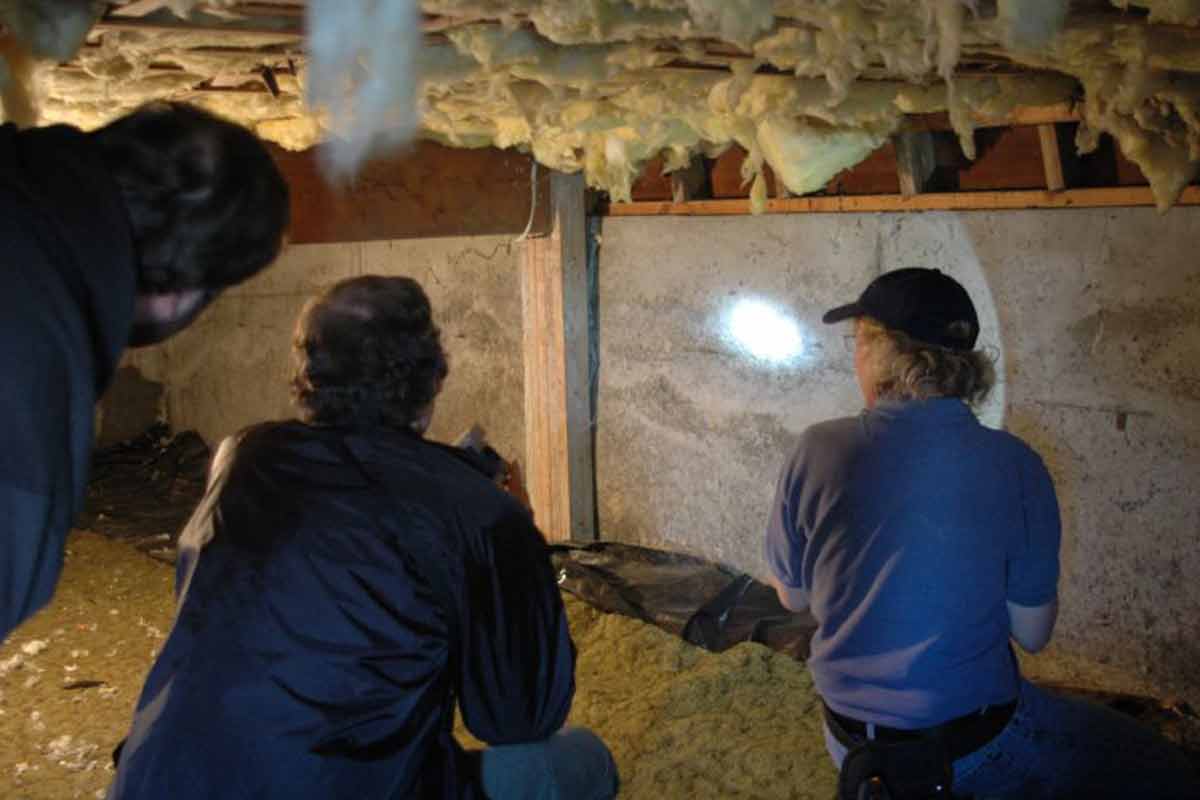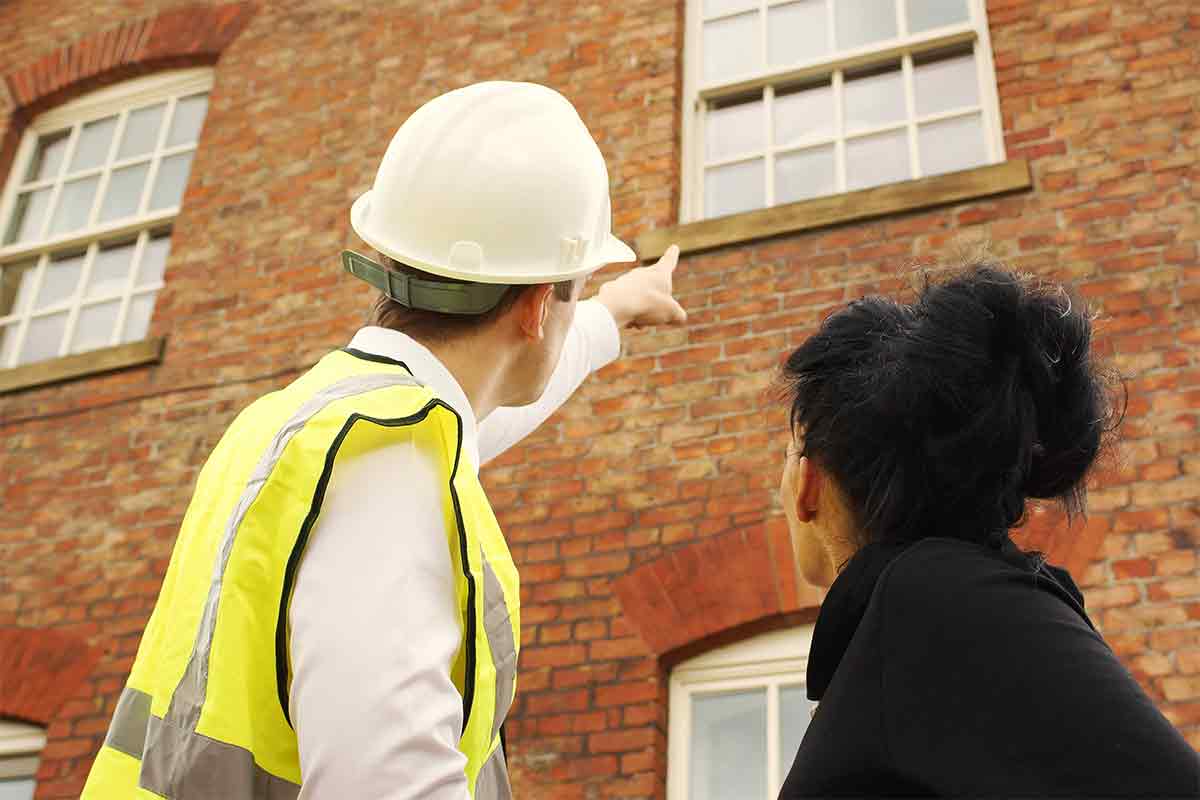Quality matters when hiring for a big project. Call a Best Pick now!
There’s nothing quite like buying your first home—the prospect of having a space to truly call your own is exciting, and the reality of the debt you’ll acquire can be a bit sobering. Emotions aside, buying a home is one of the best—and most significant—financial investments you’ll ever make.
All the more reason to schedule a home inspection to make sure you know what you’re getting when you sign that ream of papers at closing.
Is a Home Inspection Required?
In most cases, a home inspection is not required to finance a mortgage, but that doesn’t mean you should forgo it.
Even if you’re buying a foreclosure being sold as-is, an inspection is the only way to find out if you should be planning for major repairs in the future. Brand-new homes also need to be inspected. Mistakes can be made during the building process, and it’s far better to discover and correct any problems before you move in.
For as-is properties, the inspection is purely for your information and peace of mind. For any other type of residential property, the sale of the house can be made contingent upon the inspection results.
Depending on the inspector’s findings, you may want to try to negotiate a lower sale price, ask the sellers to fix problems or provide an allowance for you to do so, or walk away from the deal altogether.
Research home inspectors before you make an offer on a house, and call a few on your short list as soon as you’re under contract. Due diligence periods typically last two weeks, so you’ll need to get on an inspector’s schedule quickly.
What Does a Home Inspector Do?
 A home inspector investigates every visible part (that can be accessed reasonably) of the home you’re purchasing and provides you with a written report of his or her findings.
A home inspector investigates every visible part (that can be accessed reasonably) of the home you’re purchasing and provides you with a written report of his or her findings.
A home inspection checklist typically includes an assessment of the interior and exterior of the house as well as every major system—electrical, plumbing, and HVAC.
The Inspection
Home inspectors will not perform invasive work. Your inspector should open the main electrical panel to check for safety and proper configuration, for example, but he or she will not cut open walls or ceilings to check for mold or hidden plumbing leaks.
Most inspectors will not walk on the roof because of potential safety hazards, but depending on the heights involved, your inspector may stand on a ladder to assess shingle quality. If problems are noted, hire a roofer for a formal roof inspection.
Home inspectors are not specialists in every component of a house. Your inspector should point out and make a note of any extra systems—radon mitigation systems, central vacuums, and whole-house water softener/filtration systems, for example—but if you have concerns about the function or condition of those systems, you’ll need to contact an expert.
The Report
A day or so after your home inspection, the inspector will send you a comprehensive report of his or her findings, including photo documentation of any problems.
Read this report carefully, and if you have any questions or need clarification, contact your inspector.
If the inspection revealed major problems that will affect the sale of the house, your real estate agent will contact the listing agent to communicate your requests to the sellers and revise the contract.
Frequent Findings
 Common home inspection findings vary slightly based on geography and age of the home, but there are a few problems that inspectors see time and time again.
Common home inspection findings vary slightly based on geography and age of the home, but there are a few problems that inspectors see time and time again.
Water intrusion. Water that appears where it doesn’t belong in a home is cause for quick action. Your inspector should look for evidence of foundation cracks and plumbing leaks. If he or she notes any problems, contact an appropriate contractor for further investigation.
Poor-quality electrical work. A full, messy electrical panel is a clue that the home’s wiring may not be up to code. Your inspector can test outlets for proper configuration and inspect any visible wiring, but any concerns should be handled by a licensed electrician.
Aging roofing materials. A home’s roof takes the full brunt of the weather. Shingles are designed to withstand decades of wear and tear, but a roof replacement is inevitable at some point. Your inspector will be able to give you a ballpark estimate of how much time your roof has left.
Subpar attic ventilation. Ideally, a home’s roof will include both soffit vents and ridge vents. This dual-vent system helps air circulate through the attic as efficiently as possible, which keeps the home’s occupied spaces more comfortable and can help lengthen the roof’s lifespan.
Poor general maintenance. Home maintenance is not a one-time event. Unfortunately—and for a variety of reasons—some homeowners simply don’t take good care of their property. Be especially mindful of maintenance issues if the house you’re purchasing has been vacant or a rental property.
The bottom line is that any problems caused by neglected maintenance will need to be fixed, either by the seller or by you.
How Do I Get a Good Home Inspection?
Follow these home inspection tips to get the most out of your appointment:
1. Be there.
 Home inspections typically take two to four hours, depending on the size of the house. It is a time commitment in your already busy schedule, but this is your best opportunity to learn more about the investment you’re about to make.
Home inspections typically take two to four hours, depending on the size of the house. It is a time commitment in your already busy schedule, but this is your best opportunity to learn more about the investment you’re about to make.
As thorough as the report may be, it will not replace you being there to see any possible problems firsthand. And on that note, if an inspector asks you not to attend the inspection, find someone else immediately.
2. Ask lots of questions.
If possible, arrange to visit the house with your real estate agent after you’re under contract and before the inspection (or arrive early to the inspection appointment). Take your time looking around, and come up with a list of questions to ask during the home inspection.
Curious about whether a stain on the ceiling is a possible leak? Wondering why there’s an extra electrical panel in the basement? Your inspector will be able to give you some possible answers.
3. Insist that the sellers leave the property.
This may seem like a no-brainer, but learn from my mistake: unless the circumstances are truly extraordinary, the sellers should not be present at the home inspection—even if they’re lovely people.
When the sellers stick around for the home inspection—even if they make a concerted effort to stay out of the way—both the inspector and the buyers may feel rushed and uncomfortable asking important questions.
Even more concerning, major issues could be overlooked. In my case, it was an unvented, outdoor-use-only gas fireplace installed in an enclosed sunroom. And yes, that is an expensive fix. Lesson learned.
Here’s the bottom line:
You put that offer on your dream home because it’s your dream home. The last thing you want to think about is something being wrong with it. But wouldn’t you rather know of any problems now, before the mortgage payments are your responsibility?
Don’t skip the home inspection.
Ask as many questions as you need to during and after the inspection. In my experience, the best home inspectors usually have experience in home building, architecture, or renovation, and they’re happy to talk about house-related things. They’re a wealth of information, so don’t be afraid to speak up.


























